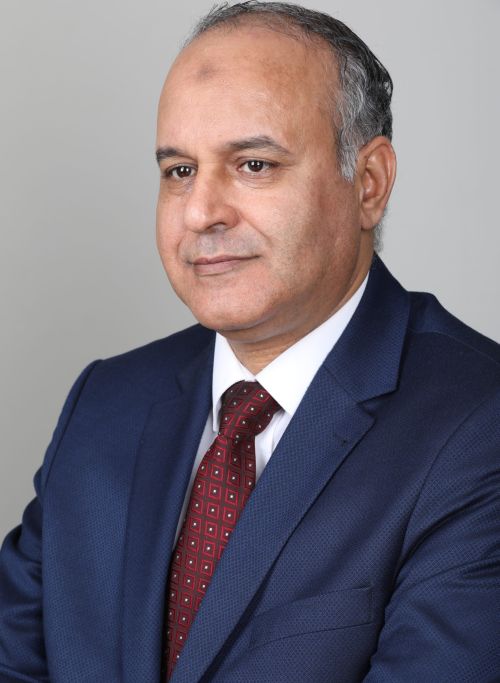
Dr. Ali Al-Issawi is a leading economist, politician, and diplomat, born and raised in the City of Benghazi. He earned his bachelor’s degree and his master’s studies at the Faculty of Economics, University of Benghazi. Dr. Al-Issawi completed his education in Bucharest, Romania, where he received his PhD in economics from the Academy of Economic Studies. He also received a diploma in international relations from the Institute of International Relations, affiliated with the Ministry of Foreign Affairs in Tripoli, Libya, and a certificate in health economics from the University of York in the United Kingdom.
Success under pressure
Dr. Issawi is known for his ability to work and deliver positive results in the face of exceptional circumstances, whether it be an economic, social, administrative crisis, or political upheaval.
During his 2011 tenure as the Minister of Foreign Affairs and Deputy prime minister for the revolution Dr. Al-Issawi faced numerous crises, which requires special skills to handle the political, economic and security critical issues. As Minister of Economy, he was faced with both an intense war and the coronavirus pandemic combined with serious economic problems like public debt , lack of liquidity In 2019, under his leadership, Ministry performance significantly improved Libya’s stability, in spite of the looming challenges. As mentioned below, Dr Isawi during his career had led many economic and policy reform initiatives to improve the business environment and the economy as a whole.
Legislative
Economic
Diplomatic
Crises management
Memberships
- The Supreme Oil and Gas Council.
- The Board of Trustees of the Economic Development Council.
- The National Security Council.
- The Board of Trustees of the Libyan Investment authority.
- The Supreme Committee for Expanding the Ownership Base (Privatization).
- The Supreme Committee for the Employment Fund – Head of the Libyan side in the joint economic Libyan Indian and Libyan-Pakistani committees.
- Chairperson of the Investment Promotion Authority board.
- Chairman of the Credit Guarantee Fund board of directors.
Initiatives and projects
Initiative for the digital transformation of the Ministry of Economy and Industry He oversaw the complete transition to digitalization in the entire sector, as the project started with the import and export systems, the commercial register, trademarks and modeling, with the aim of reducing the cost, time and effort to fight corruption. He launched the initiative to apply the input-output model to the Libyan economy to improve the performance level of public policies in cooperation with the “Eco Mode” organization.
Initiative for several projects in collaboration with the world bank 2007-2009 for example, rating Libya in doing business reports, non-oil export promotion survey, WTO accession preparation, shadow economy survey.
Initiative for the e-regulation and e-registration to facilitate the business procedures with unctad organization in 2019.
Initiative to finance projects outside the government budget, through public-private partnerships (PPP) and activating the law of Islamic instruments (sukuk law no 4/2016) to finance development projects by the cabinet.
Scholarship and public outreach
In addition to his work and his official duties, Dr. Al-Issawi worked as a collaborating professor at Libyan universities teaching economics. He also gave several lectures on health economics, free trade agreements, and financing projects outside the government budget by public and private partnership and Islamic instruments by Sukuk method.